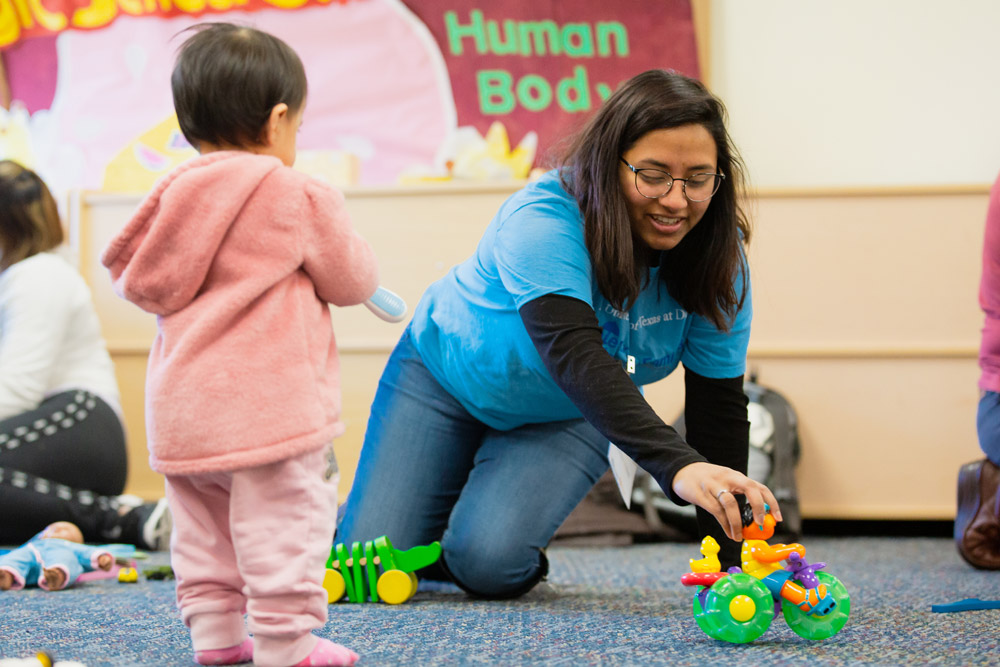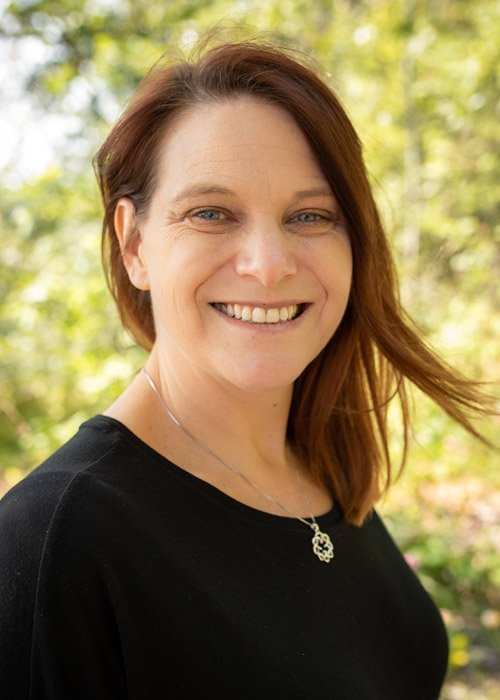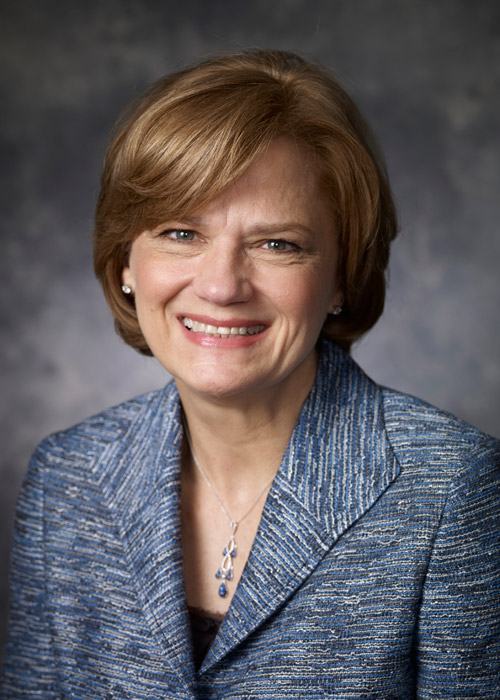Program To Expand Diversity in Developmental Psychology Research
By: Stephen Fontenot | July 23, 2021

The main tenets of developmental psychology — the study of how children develop into adults — have been well studied and thoroughly documented. But a noted shortcoming in this research is that much of it, particularly in the U.S., has been conducted by and focused on English-speaking, white individuals from middle- to high-income households.
An innovative, yearlong internship program at The University of Texas at Dallas that will increase diversity among both developmental psychology researchers and the children they study is aimed at addressing that deficiency.
The Center for Children and Families (CCF) at UT Dallas is hosting a Research Experience for Undergraduates (REU) site, facilitated by a National Science Foundation (NSF) grant. The inaugural group of a dozen UT Dallas and Dallas-area community college students from historically underrepresented groups will participate in a 42-week paid internship to gain the knowledge, skills and connections to perform developmental psychology research while also reaching out to the community.
“This is a push throughout developmental science,” said Dr. Mandy Maguire, associate professor of speech, language and hearing in the School of Behavioral and Brain Sciences (BBS) and principal investigator for the REU site. “When you have science that comes consistently from one population with similar researchers asking the questions, that research can be very good research, but it is sometimes biased.
“We need diverse voices in developmental science; our research benefits from it. We have great students from many different backgrounds. As we give them better opportunities, we help promote that next generation of scientists to fill that representation gap.”

“As we diversify the scientists, we’re also diversifying the science — that is, who is being studied in developmental research. When those scientists can bring their voices to research on their own communities, that research becomes so much better. It seems like a win-win across everything.”
Dr. Mandy Maguire, associate professor of speech, language and hearing in the School of Behavioral and Brain Sciences
The length of the program sets CCF’s program apart from the majority of NSF REU programs.
“Most REUs are only for one summer, giving participants time to work with one mentor on one project,” said Dr. Margaret Owen, Robinson Family Professor and CCF director. “Here, students are going to be exposed to so much more, from a wide range of faculty members.”
Maguire said the opportunity opens the door for many students who are traditionally left out of research experiences.
“As we diversify the scientists, we’re also diversifying the science — that is, who is being studied in developmental research,” she said. “When those scientists can bring their voices to research on their own communities, that research becomes so much better. It seems like a win-win across everything.”
Play Program
In the fall, students will get hands-on experience through Play With Me (Juega Conmigo), a CCF community-based outreach program serving young, at-risk children and their parents in North Texas, while they also participate in a seminar addressing child development and its methods of study.
In the spring, the focus shifts to research, as students use their training to conduct culturally sensitive studies of children’s development. The summer will consist of analysis and interpretation of data and the reporting of findings to both academic and lay audiences.
“One of the reasons we lose diverse students in college is because many of them work full-time jobs and don’t have time to work in research labs,” Maguire said. “But they cannot go to graduate school without that experience. We need to be able to transition great college students to great PhD students, and that requires research experience.”
Adriana Villa Baird, Play With Me program director and community liaison specialist, said a typical undergraduate experience often does not involve firsthand opportunities.
“They take classes, but they do not have the chance to apply their learning until they go to a master’s program,” she said. “Past Play With Me participants have told me that, with this opportunity to connect with members of the community and understand their needs, they have become more comfortable and more confident in interacting with parents.”

“Students will come to understand the issues we face doing research with this population, gaining more insight into how our measures can be as culturally sensitive and appropriate as possible. At the same time, we’re training students who come from those same communities. That’s the value we’re providing the school, the community and science in general.”
Dr. Margaret Owen, Robinson Family Professor and director of the Center for Children and Families
Owen explained that the REU students will learn how to implement research with the population CCF already serves in its programs.
“Students will come to understand the issues we face doing research with this population, gaining more insight into how our measures can be as culturally sensitive and appropriate as possible,” she said. “At the same time, we’re training students who come from those same communities. That’s the value we’re providing the school, the community and science in general.”
Maguire said students from understudied communities bring with them cultural experiences and an understanding of family dynamics and the obstacles that families have when it comes to raising children.
“Having students from similar communities helps us identify those barriers, get better measures and interpret our data better. It can even help us ask questions we had not thought to ask. At the same time, families might be more comfortable that there’s someone like them that they can talk to, that might understand their experiences a little bit more,” she said.
Choosing Students
The 12 students chosen from 175 applicants are split evenly between current UT Dallas undergraduates and students from the Dallas College system and Collin College. Some are first-generation college students; others are nontraditional students who returned to higher education after a time away.
“There were two key traits we saw in each of these students’ applications and interviews: a strong desire to give back to the community and scientific curiosity,” Maguire said. “Not many of them have a traditional academic pathway, but because of that, they have experiences we think will add so much to the science and the understanding of the obstacles that families face, as well as the questions we need to be asking about child development risk within families.”
Maguire hopes that this coming school year marks the beginning of a program that will serve science, the University and the community for years to come.
“We have three years of funding, and many REUs continue for decades as long as they are successful,” she said. “We would love to eventually make this a larger training institute.
“We hope to make UT Dallas a beacon for doing important, culturally sensitive research and creating that pipeline of scientists that go on to top-tier graduate schools across the country and become the next generation of scientists. That would be a fabulous thing for science, for UT Dallas and for the families in Dallas that we could serve.”
Media Contact: Stephen Fontenot, UT Dallas, 972-883-4405, stephen.fontenot@utdallas.edu, or the Office of Media Relations, UT Dallas, (972) 883-2155, newscenter@utdallas.edu.





